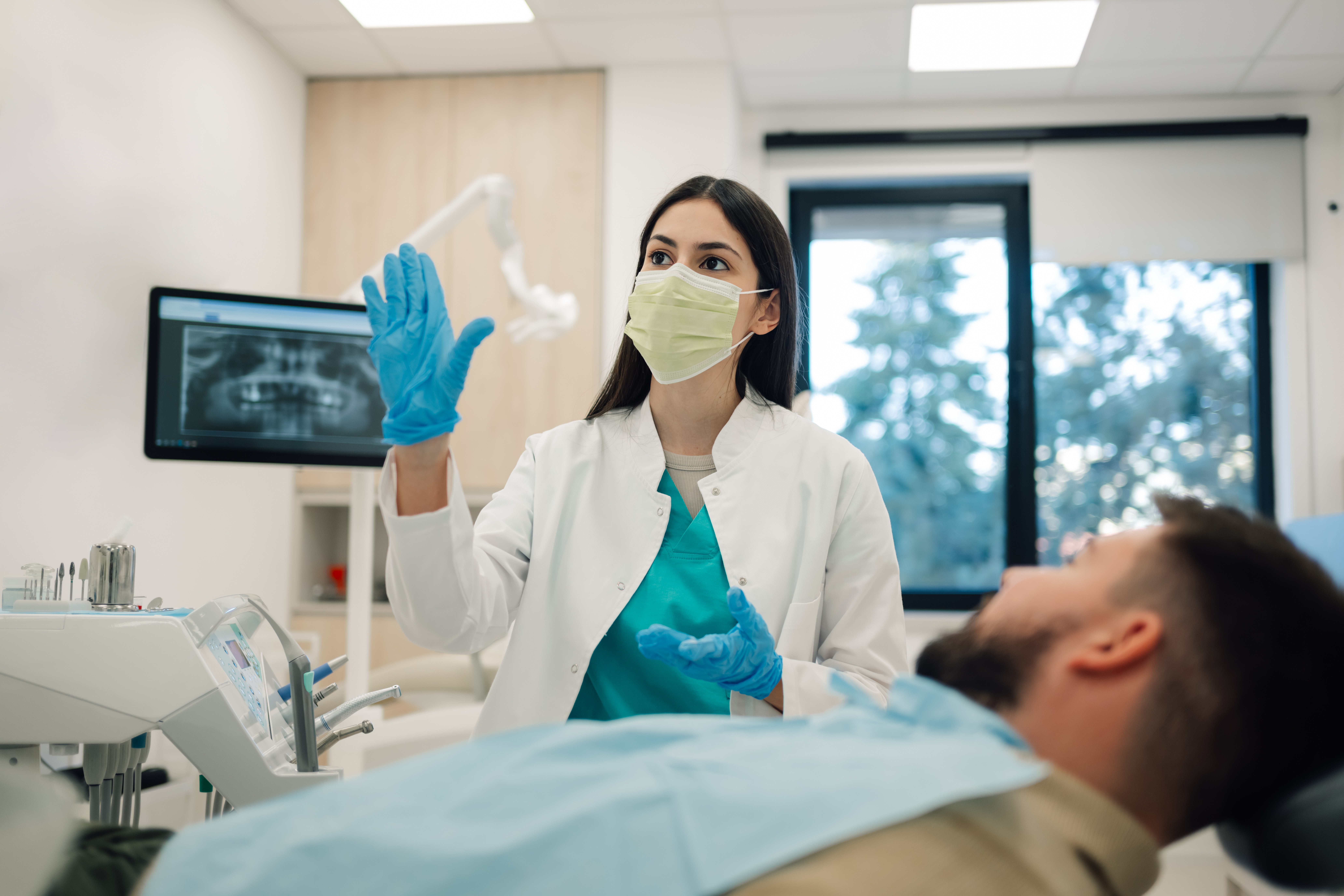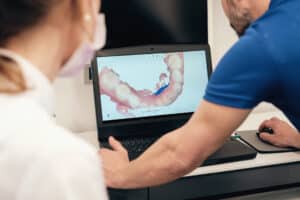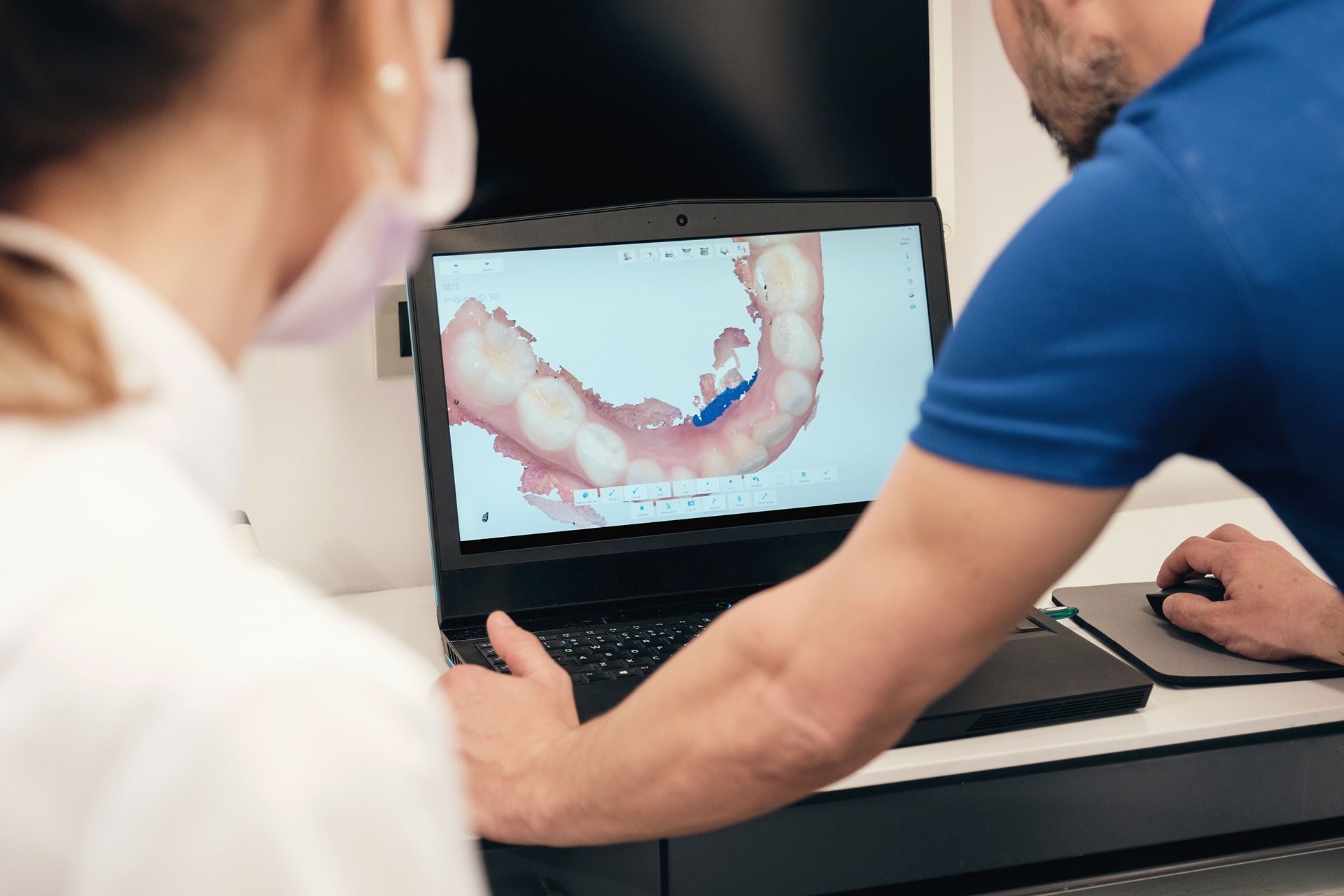- Why dentists want X-rays
- Are dental X-rays safe?
- The different types of dental X-rays
- The cost of skipping dental X-rays
Many patients have concerns about undergoing X-rays, regardless of the part of the body that will be imaged.
Worries about potential health risks associated with ionizing radiation can be especially prevalent when the head is involved, such as in your dentist’s office, where X-rays are a routine part of ensuring your teeth and gums are as strong and healthy as possible.
Understanding what dental imaging reveals can help hesitant patients see why the digital dental X-rays’ benefits usually outweigh any perceived risks.
Why dentists want X-rays
One of the most frequently asked questions is why dentists need to use X-rays when they can simply conduct examinations of teeth and gums with the naked eye.
The truth is that not everything that pertains to your dental health is visible. Think of it like the old iceberg analogy: there is a lot more information to see under the surface than what you can see above.
In other words, tooth structures underneath the gums and along the jaw can only be seen with X-ray technology. One example is that X-rays help dentists detect gum disease and bone loss before symptoms such as loose teeth present themselves above the gumline. Viewing the underlying bone around tooth roots can also help the dentist take action long before there is a significant risk of the tooth falling out.
X-rays also provide evidence of small cavities between teeth, where they often start, which can be treated before they develop into tooth decay or other issues. Wisdom teeth development and positioning are also much easier to determine using X-rays, as is the presence of hidden infections and abscesses.
In dentistry, as in most other forms of healthcare, early detection is crucial for preventing severe conditions from progressing, thereby helping patients avoid tooth pain and additional treatments.
Are dental X-rays safe?
We understand the concerns our patients have about radiation exposure from X-rays. However, modern digital x-ray technology uses up to 90 percent less radiation than older, film-based methods. This is welcome news for individuals who require regular imaging due to ongoing or complex dental health issues.
Digital X-rays utilize high-tech electronic sensors to capture and record images, requiring significantly less radiation to produce a clear picture. Because the sensors are more sensitive, digital X-rays require shorter exposure times, which also results in lower radiation doses.
Although the risk to your health from radiation is very low, dentists still follow strict guidelines to limit your exposure. At Yonge Eglinton Dental, we apply lead aprons and thyroid collars to our patients to provide maximum protection, and we ensure that our equipment is well-maintained and in proper working order.
We only recommend X-rays when absolutely necessary, especially if the patient is pregnant, in which case we postpone non-urgent X-rays until after the baby is born. If the X-rays cannot wait, we take enhanced measures to shield the patient and their baby.
Additionally, one of the benefits of digital dental X-rays is that the images can be enhanced using specialized software, allowing adjustments to brightness, contrast, and zoom. These features add extra clarity to the photos, minimizing the need for retakes and reducing dental X-ray radiation exposure.
Even if you require more X-rays than the average patient, the amount of radiation from a routine dental X-ray is extremely low, comparable to the background radiation you receive from a short walk in the sun.
The different types of dental X-rays
Your dentist uses several types of digital X-rays to obtain a comprehensive picture of your dental health. Some x-rays are conducted regularly, while others are used on a case-by-case basis to plan specific dental and orthodontic treatments.
For example, bitewing x-rays are generally recommended once per year for most adults. These images provide a detailed view of your teeth and gum structure for cavity detection and to determine whether a filling or crown is necessary to treat the problem effectively.
Periapical X-rays can also be recommended on a routine basis for precise evaluation of the tooth root and surrounding bone. These images help dentists decide between treatment options, such as root canal or extraction, and to plan implant placement and positioning.
For an overall assessment of your oral health in a single image, dentists often use panoramic X-rays to obtain a comprehensive view of the entire mouth, including the upper and lower jaws, teeth, and surrounding structures. Panoramic images are valuable for assessing impacted teeth, planning orthodontic treatment, and identifying potential problems such as cysts, tumours, or jaw abnormalities.
Some complex dental cases require CBCT (Cone Beam Computed Tomography). These images offer a detailed 3D view of teeth, bones, and surrounding structures for cases involving dental implants, root canals, oral surgery, TMJ disorders, and other related conditions.
The cost of skipping dental X-rays
Patients are always given the option to skip X-rays for any reason. However, doing so puts them at risk of missing early-stage problems that can develop into severe issues requiring intensive treatment and multiple visits to the dentist.
Catching growing conditions early can also prevent dental emergencies and treatment complications from incomplete information.
Indeed, there is more reason to be concerned about the adverse health outcomes from skipping X-rays than from the small amount of radiation that comes from digital X-ray technology.
At Yonge Eglinton Dental, we take every precaution to ensure you are always safe and informed during your time in our office, including when taking X-rays. We will answer all your questions, explain the clinical reasoning behind the procedure, and help you make informed decisions about your care.
Our mission is to build trust through professional, transparent dental services that help you enjoy healthy teeth and gums, along with a big, beautiful smile to share with the world. Give our office a call today to learn more about our dental team and services. Your smile will thank you!
Prevent serious dental issues with safe digital dental X-rays from the dental experts at Yonge Eglinton Dental in Toronto
Contact our dental health team when you are ready to optimize your oral health. We will work together to ensure your teeth and gums look great and are as strong and healthy as possible. Make an appointment for an office visit today by calling our office at 416-932-2222 or booking online. We look forward to seeing you!
Are you concerned about visiting the dentist? Read about how we protect the health and safety of our patients and staff so your family can seek proper dental care with peace of mind.








